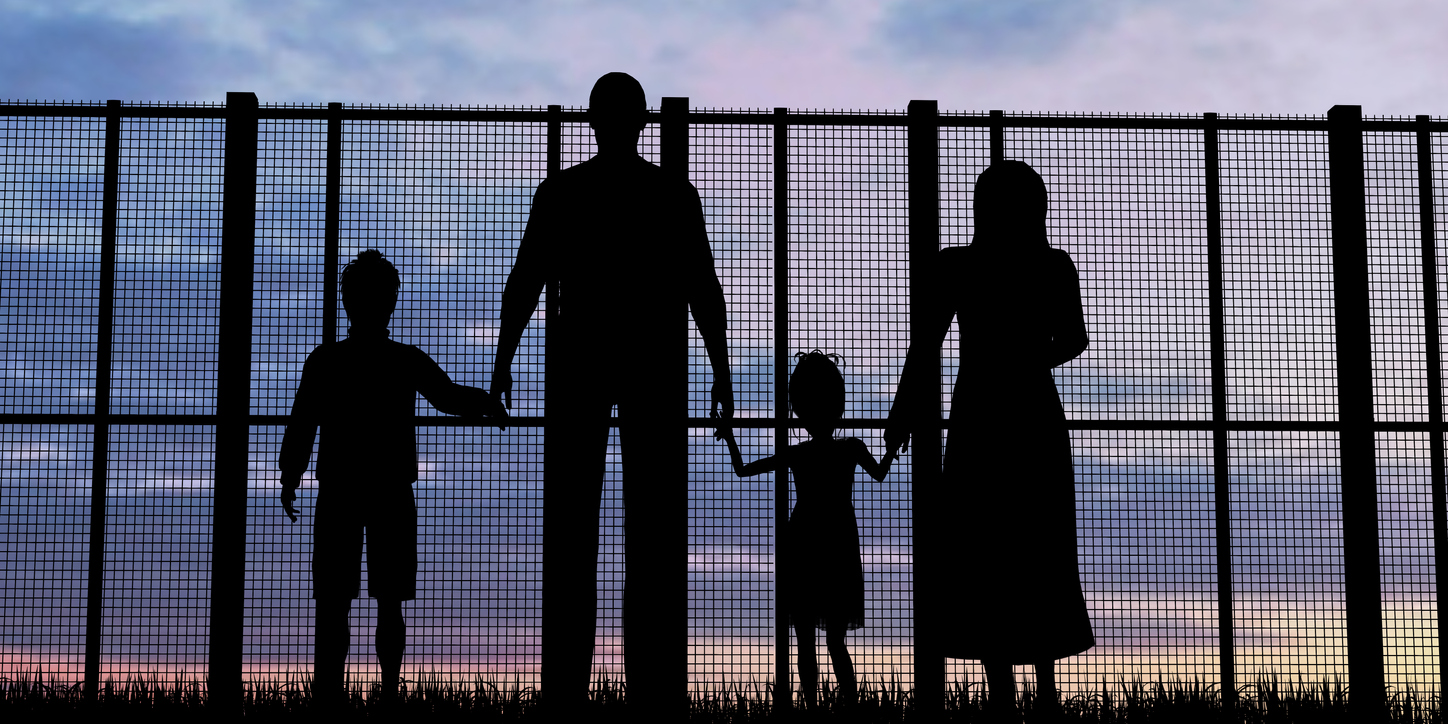
Coronavirus and immigrant detainees: ‘All locations in this jail are communal’
Editor’s note: CHN Intern Olivia Maurer is a junior at Cornell University, where she is majoring in Human Biology, Health, and Society, with a minor in Global Health. Voices for Human Needs is examining the effects of coronavirus on low-income and other vulnerable populations. This post is one in a continuing series.

Advocates across the country are urging for the immediate release of 38,000 detained immigrants in order to protect them from the virus.
The truth is that COVID-19 has the potential to devastate asylum seekers. At Adelanto Detention center in Adelanto, California, refugees are struggling. Just eight months after Elvira gave birth in her home country of Cameroon, she was forced to flee, leaving her newborn child and another small child with her mother. She traveled great lengths through Nigeria, Ecuador, and eight other countries before reaching the U.S.-Mexico border, where she was detained. That was three years ago, and Elvira has been through three detention centers, but has not been released.
Staff at the Adelanto Detention Center have not given detainees so much as a flu shot, let alone any protective measures against COVID-19. Elvira has pre-existing conditions that are poised to make her more vulnerable to COVID-19 including complications since giving birth, asthma, high blood pressure, and hepatitis A, developed during her time at the detention center. Elvira has been denied release many times in immigration courts, many of which are closing down or experiencing delays due to the pandemic.
Elvira also noted the difference in the treatment she has received compared to that received by her male counterparts. The male side of the facility appeared to be quarantined, according to Sylvie Bello, founder and CEO of the Cameroon American Council and advisor to Elvira. However, the women’s side appeared unchanged, without enough soap and hand sanitizer for those detained. Seeking asylum in the United States presents a unique set of challenges for Cameroonian women like Elvira, including but not limited to anti-black racism and blatant sexism. In the face of COVID-19, everyone should be able to focus solely on staying safe.
A pregnant mother from Honduras who was seeking asylum with her four-year-old daughter describes life at the South Texas Family Residential Center in Dilley, Texas, the largest immigration detention center in the United States. She recounts that she has not been provided hand sanitizer, protective or cleaning supplies, or even preventative COVID-19 education. Staff at the Dilley facility did not make testing for COVID-19 available, and did not make any plans to do so. The South Texas Family Residential Center has a capacity of 2,400, but is it equipped to keep out COVID-19?
Every time mothers like these and their children use the bathroom, it is in a shared facility. Every time they share meals, it is in close quarters with hundreds of other families. Detainees say “[they] cannot keep a sufficient distance from other people to keep [themselves] safe from contracting the virus. [They] must be close to others all of the time. All locations in this jail are communal.”
Across the United States, advocates like Never Again Action and Amnesty International are urging for the immediate release of 38,000 detained immigrants in order to protect them from the virus. Numerous detention facilities are holding children for more than 200 days, 10 times what is allowed under a long-standing Settlement Agreement. Children are spending their first birthdays, speaking their first words, and taking their first steps detained in petri dishes. In response to the pandemic, immigration officials have made an attempt to impose safety precautions such as social distancing. Detainees now eat in 20 minute rotations and the number of families residing in each room is limited to two. But how can social distancing be possible when bedrooms, bathrooms, and dining facilities are shared? The Washington Post reports that bathrooms in the Dilley detention center are shared by 118 people.
Under U.S. law, these families have the right to seek asylum. To seek safety. Keeping refugees, especially children, in detention centers is a step in the wrong direction. It is dangerous and unethical to put 38,000 people at risk. New families arrive at detention centers across the country every day, with many family members exhibiting virus symptoms.

#FamiliesBELONGTogether.
At least 185 people have died in immigration detention centers since 2003, when United States Immigrant and Customs Enforcement (ICE) began reporting detainee deaths to the public. Many have criticized the quality of medical care in United States immigrant detention. A report published by Human Rights Watch and Freedom For Immigrants found numerous failures in detainees’ medical provisions under President Trump’s deportation and detention plans including delays in care, severely inadequate mental health care, sluggish emergency responses, and unqualified medical staff.
In an open letter to ICE this week, medical staff highlighted the dangerous conditions posed by overcrowded prisons, jails, and detention facilities in the wake of COVID-19. “Individuals and families, particularly the most vulnerable—the elderly, pregnant women, people with serious mental illness, and those at higher risk of complications— should be released while their legal cases are being processed to avoid preventable deaths and mitigate the harm from a COVID-19 outbreak,” the letter reads. “It is impossible to ensure that detainees will be in a ‘safe, secure and humane environment,’ as ICE’s own National Detention Standards state.”
USA Today reports that 61 confirmed cases of coronavirus among immigration detainees have been announced since March 30. An additional 19 ICE employees at detention facilities have tested positive for COVID-19. By failing to release detained families, detention centers are not only needlessly endangering the lives of tens of thousands of asylum seekers, but also threatening to infect their own staff and surrounding communities, putting a larger strain on America’s pandemic preparedness.
Some governments in the U.S. already have taken steps to protect the country’s incarcerated from the coronavirus. Ohio has begun to release hundreds of inmates, as prisons are largely overcrowded and lack the resources necessary to fight the virus. Detention facilities are arguably no better prepared to fight coronavirus.
New York Times reporter Caitlin Dickerson tweeted that detainees feel like “sitting ducks, waiting to be infected,” as they sit in detention facilities. These families must be released so that they can adequately protect themselves from contracting the virus and infecting others. We cannot ask mothers and families to risk the health of their children – or themselves – as COVID-19 grips the nation. Without the space to practice social distancing or the gloves, masks, and soap to keep themselves safe, 38,000 lives are on the line. It is inhumane to keep them in danger any longer.

